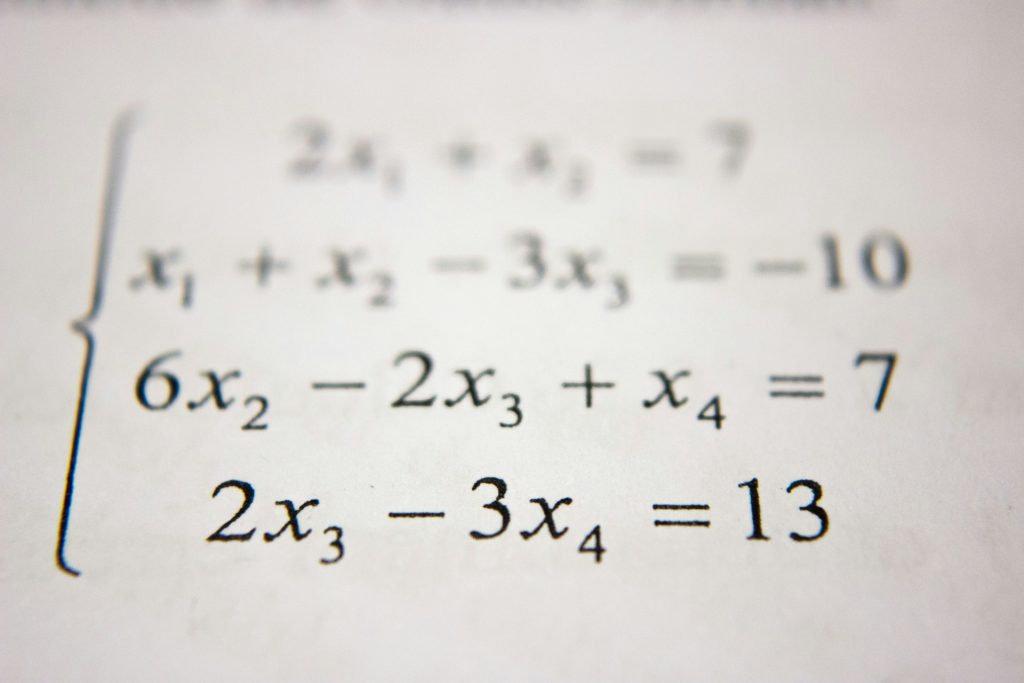Mathematics can be a challenging subject for many individuals, often causing frustration and anxiety. However, with the right approach and dedication, mastering math can become a rewarding experience. Whether you’re a student striving for academic success or an adult looking to enhance your math skills, implementing a systematic approach can make the learning process more efficient and enjoyable. In this guide, we’ll explore effective strategies and practical tips to help you learn math fast and effectively.
Building a Strong Foundation
Mathematics is built upon fundamental concepts that serve as the building blocks for more advanced topics. Before delving into complex equations or geometric proofs, it’s essential to establish a solid understanding of basic arithmetic operations such as addition, subtraction, multiplication, and division. Without a strong foundation, attempting to tackle higher-level math can feel overwhelming and daunting.
Embracing Number Sense
While memorization has its place in learning math, developing number sense is equally important. Rather than relying solely on rote memorization of multiplication tables or formulas, strive to understand the underlying principles behind mathematical operations. Cultivating number sense enables you to approach problems strategically, leading to a deeper comprehension of mathematical concepts and their applications.

Setting Clear Goals
Identifying your objectives and areas of focus is essential for efficient learning. Whether you’re aiming to improve your algebra skills or conquer calculus, establishing clear goals allows you to tailor your learning process accordingly. By prioritizing specific topics and allocating your time and resources effectively, you can streamline your learning journey and track your progress along the way.
Practical Tips for Accelerated Learning
1. Practice Regularly
Consistent practice is key to mastering math. Dedicate time each day to solving math problems, whether through online exercises, textbooks, or practice worksheets. Repetition reinforces concepts and enhances problem-solving skills, making math feel more intuitive over time.
2. Learn From Mistakes
View mistakes as valuable learning opportunities rather than setbacks. Analyze your errors carefully, identify any misconceptions or misunderstandings, and strive to correct them. Embracing a growth mindset fosters resilience and encourages continuous improvement.
3. Grasp Conceptual Understanding
Seek to understand the underlying principles behind mathematical concepts, rather than relying solely on memorization. Conceptual understanding enables you to apply mathematical reasoning and problem-solving strategies flexibly, empowering you to tackle a diverse range of problems effectively.
4. Seek Support When Needed
Don’t hesitate to seek assistance when encountering challenges or difficulties. Whether it’s consulting with a teacher, seeking peer tutoring, or utilizing online resources, there are numerous avenues for receiving guidance and support. Asking questions and seeking clarification promotes clarity and deepens your understanding of mathematical concepts.

Number Tricks and Educational Strategies
5. Utilize Mental Math Strategies
Learn handy mental math techniques to expedite calculations and improve efficiency. Techniques such as rounding when adding or multiplying numbers can simplify complex computations and reduce cognitive load.
6. Practice Strategic Multiplication
Master multiplication shortcuts, such as the “multiply by 5” trick, to streamline calculations and enhance computational speed. By leveraging strategic techniques, you can perform multiplication tasks more swiftly and accurately.
7. Break Down Complex Problems
Break down complex math problems into manageable steps to facilitate problem-solving. Analyze each component of the problem methodically, apply relevant mathematical principles, and work systematically towards a solution.
Educational Best Practices
8. Attend Classes Regularly
Consistent attendance and active participation in math classes are crucial for success. Engage with course materials, ask questions, and seek clarification on challenging topics to enhance your learning experience.
9. Review and Reinforce Concepts
Review class notes and homework assignments regularly to reinforce learning and identify areas for improvement. Practice problem-solving techniques independently, and seek additional practice materials to consolidate your understanding.
10. Seek Additional Resources
Explore supplementary learning resources, such as tutoring services, educational websites, and instructional videos, to augment your learning experience. Utilize diverse learning modalities to accommodate different learning styles and preferences.
11. Break Complex Problems Into Manageable Steps
When confronted with complex math problems, break them down into smaller, more manageable tasks. By tackling each component systematically, you can navigate complex problems with confidence and precision.

Learning math fast requires dedication, practice, and a systematic approach. By prioritizing foundational concepts, setting clear goals, and leveraging effective learning strategies, you can accelerate your math learning journey and build confidence in your mathematical abilities. Embrace challenges as opportunities for growth, seek support when needed, and celebrate your progress along the way. With perseverance and determination, you can unlock the doors to mathematical proficiency and unlock a world of opportunities.





